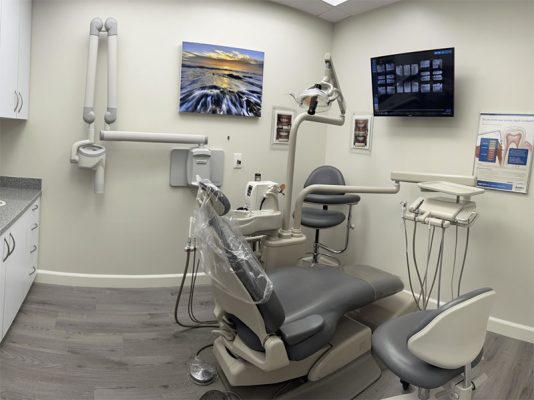Your teeth play a vital role in your overall health, but not everyone experiences the same dental development. Unfortunately, decayed or problematic teeth can lead to serious complications when left untreated. That’s why recognizing the signs that indicate you may need a tooth extraction is crucial.
Whether due to pain, infection, or impaction, a timely tooth extraction can protect your oral health and prevent further damage. If you’re experiencing persistent symptoms, it’s important to schedule a dental appointment right away. Call our Northridge, CA, dentist at (818) 709-8645 to schedule an evaluation. We proudly serve patients in Chatsworth, Granada Hills, Lake Balboa, and surrounding areas.
What Are the Signs You Need a Tooth Extraction?
1. Persistent Pain or Discomfort
Tooth pain is often your body’s first warning sign. If you’re experiencing ongoing or worsening pain—especially in your jaw, face, or ear—it could indicate an infected or impacted tooth. You may also notice:
-
Sensitivity to hot or cold foods and beverages
-
Difficulty chewing
-
Swelling in the jaw or gums
-
Pus-filled abscesses or gum pockets
-
Limited ability to open or close your mouth
-
Shifting in your bite or how your teeth align
Tooth pain shouldn’t be ignored. If you’re experiencing any of these symptoms, it’s time to consult with a dentist near you. Dr. Kevin Gropp, our North Hills dentist, can assess your condition and recommend whether a tooth extraction is the best course of action.
2. Impacted Teeth
Impacted teeth occur when a tooth fails to fully erupt through the gums, often pushing neighboring teeth out of alignment. This can lead to bite issues, increased risk of cavities, and gum disease. Wisdom teeth are the most commonly impacted, though other teeth can be affected as well.
Depending on your situation, our dentist near Granada Hills may recommend:
-
A simple surgical extraction in-office with minimal recovery time
-
Root canal treatment for partially impacted teeth, followed by monitoring and healing support
Proactively addressing impacted teeth can prevent long-term complications. In some cases, patients choose preemptive extraction before the teeth begin to emerge, avoiding crowding and misalignment.
3. Cyst Formation
A cyst is a fluid-filled sac that can form in the gums or jawbone, typically as a result of trauma or infection. While some cysts resolve on their own, others may continue to grow, leading to:
-
Swelling and pain
-
Tooth loosening
-
Difficulty chewing or opening the mouth
-
Clicking sounds in the jaw
If left untreated, a cyst may require surgical removal to prevent further damage. Antibiotics may be prescribed initially, but if symptoms persist beyond a few weeks, your dentist may recommend extraction and additional treatment. Regular dental exams can help detect cysts early before they lead to more serious problems.
4. Advanced Tooth Decay
When decay reaches the inner layers of a tooth, it can compromise the tooth’s structure and spread infection to surrounding areas. Signs include:
-
Visible cavities
-
Persistent bad breath
-
Discoloration
-
Swelling or bleeding gums
Once a tooth becomes too damaged to restore with a filling or crown, extraction may be necessary to protect your oral health. Ignoring decay can increase the risk of infection and complications during future dental procedures.
Don’t Wait—Protect Your Smile Today With Dr. Gropp!
If you’re experiencing any of the symptoms above, don’t wait until the problem gets worse. Dr. Kevin Gropp, DDS, offers expert tooth extraction services in Northridge, providing personalized, compassionate care for patients of all ages. With years of experience and a commitment to patient comfort, Dr. Gropp will evaluate your condition and guide you through your treatment options with clarity and care.
Contact our Northridge dental office today and schedule your appointment by calling 818-709-8645 or filling out our online contact form. We proudly serve patients in Chatsworth, Granada Hills, Lake Balboa, and surrounding areas.



